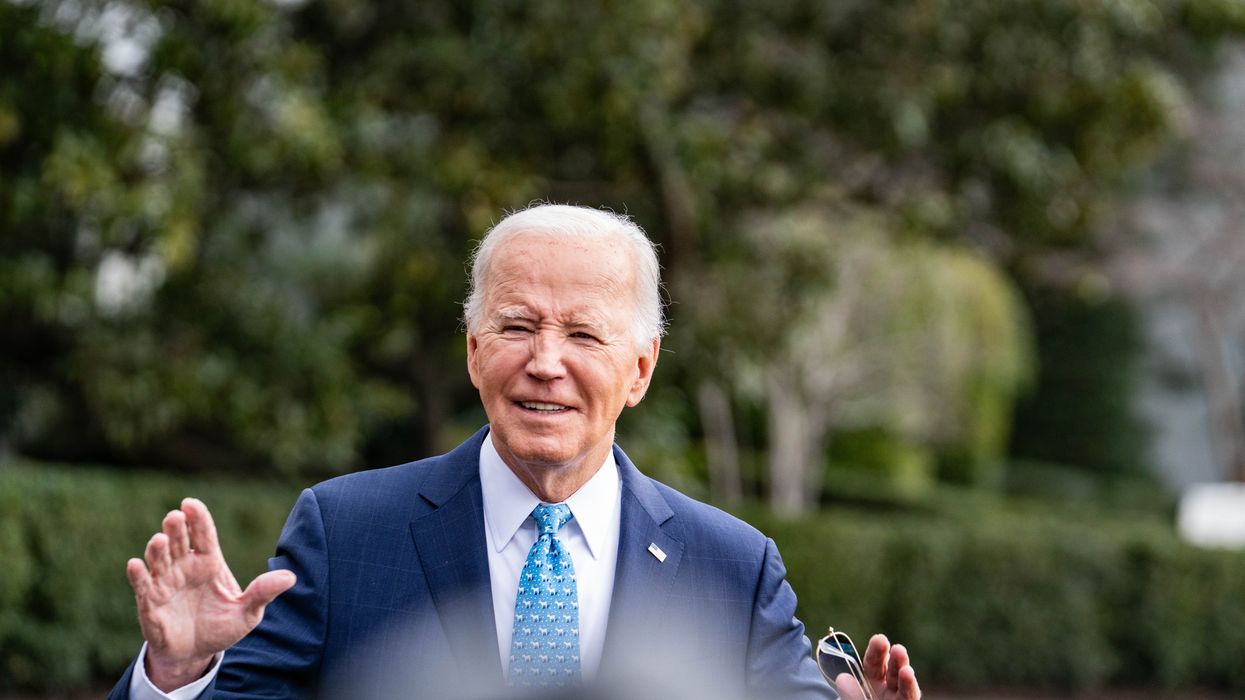Schur is a professor at the University of California – Berkeley, Pepperdine University and the University of Southern California, where he teaches courses in politics, communications and leadership.
Late last year, I wrote about the growing pressure on the Biden administration from Democratic elected officials to do more to address the growing influx of undocumented migrants into the country. These Democrats warned both of the real-world impact of the large numbers of arrivals in their cities and states and of the political consequences of continued inaction. They began to put heavy pressure on the White House, demanding more aggressive border security measures than their party has historically supported.
Last month, Joe Biden joined them. Not only did Biden embrace the most far-reaching border and deportation measures offered to date, but he also ratcheted up his language to unprecedented levels, pledging to “shut down” the southern border and calling for “the toughest and fairest set of reforms to secure the border we’ve ever had in our country.”
“It would give me, as President, a new emergency authority to shut down the border when it becomes overwhelmed,” he said. “And if given that authority, I would use it the day I sign the bill into law.”
At the same time that Biden worked to find common ground with Republicans, the progressives in his own party became increasingly enraged as they watched a president who they had helped elect four years ago now embrace the type of immigration package that no previous Democrat had ever been willing to touch. The substantive policy concessions that the White House had offered were highly upsetting to them, but listening to Biden use such highly charged language was even worse.
But Biden clearly feels like he has no other choice. Since linking immigration-related issues to legislation regarding U.S. support for Ukraine, Israel and Taiwan, the president has been forced to accept onerous GOP border proposals to keep his international aid package alive. Meanwhile, the worsening crisis at the border has increased pressure on him to do something to defuse immigration as a political weapon for his opponents to use against him.
Over the last several months, Biden has gradually moved further and further toward traditionally conservative policy solutions, and further and further away from his party's — and his own — history on this issue. Each time the president shifted rightward, Republicans asked for more. GOP leaders are now hinting that there is no immigration policy that they will find acceptable — no matter how restrictive — and would rather wait for the possibility of a Donald Trump victory that would allow them to pass an even more hard-line measure. As the president began to see the growing likelihood that no compromise would be possible and that he would likely face the voters this fall without a significant immigration-related achievement in hand, he decided that stronger rhetorical weaponry would be his next best alternative.
But if this is the type of language that Biden is using in January, imagine what he is going to sound like by October, especially if the race ends up being as closely fought as expected. He has long since abandoned any of the reforms that have been used in the past to balance out stricter border security. There are no guest worker programs of the type that business leaders want, let alone any of the previous proposals for broader legalization and citizenship opportunities for new arrivals. This has been a one-sided discussion from the beginning, and, like any effective negotiators, Republicans keep asking for more.
Biden cannot win this election on immigration. His best possible outcome is to mitigate the damage and turn the conversation to abortion rights and other issues that work in his favor. But Americans are now telling pollsters that immigration is the policy debate of greatest import to them, and with neither a legislative compromise nor a real-world border solution in the offing, Biden does not have much to offer.
The president and his allies are now working to convince voters that it is the Republicans who are the obstacles to a more secure border, arguing that the GOP would rather have a talking point that can damage Biden on the campaign trail than a substantive solution that could actually stem the migrant flow. Those types of inside baseball messages about political strategy are usually harder to sell. But it might be Biden’s best shot.
This article was originally published in AllSides. Ready the original version here.



















Trump & Hegseth gave Mark Kelly a huge 2028 gift